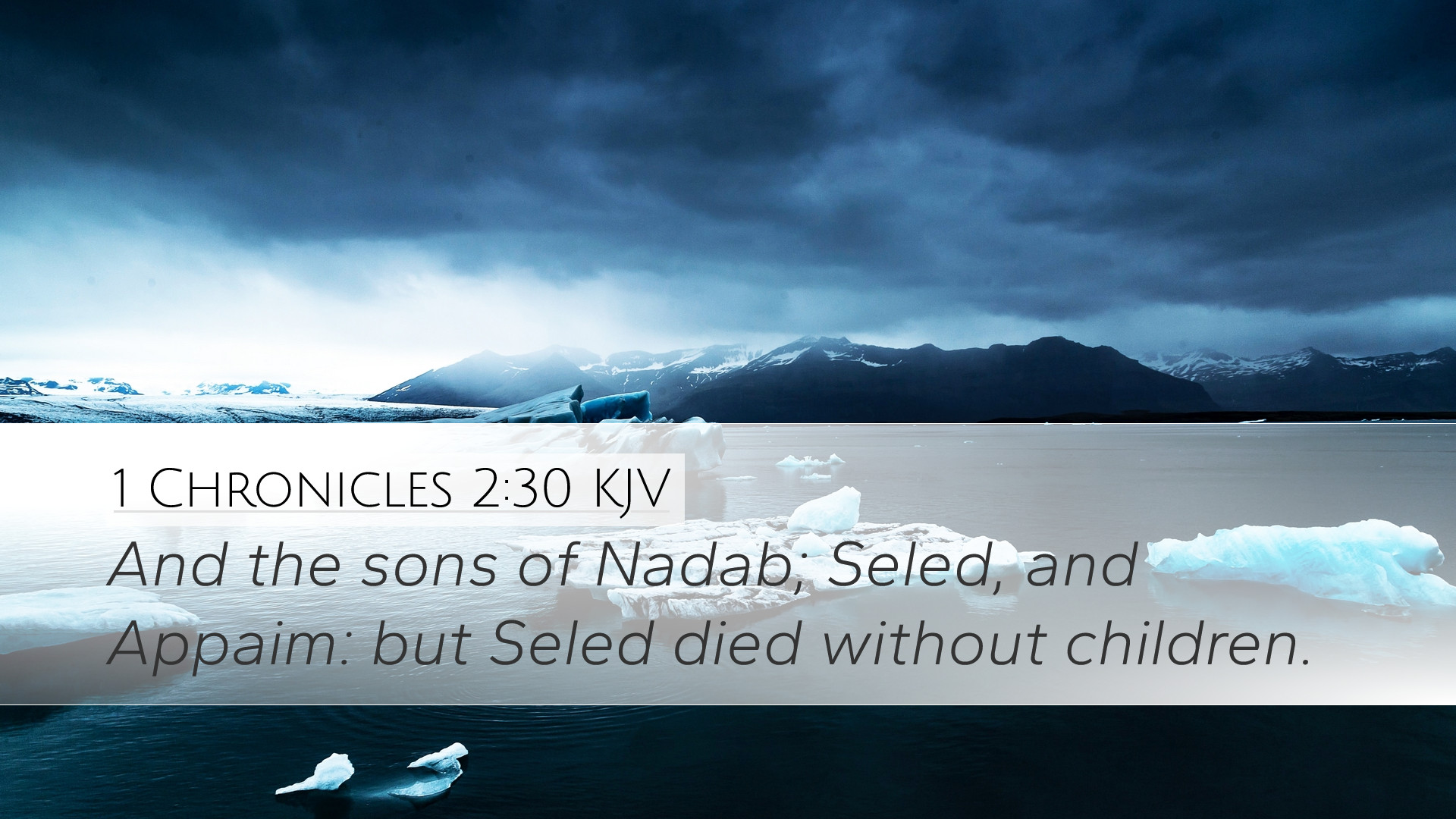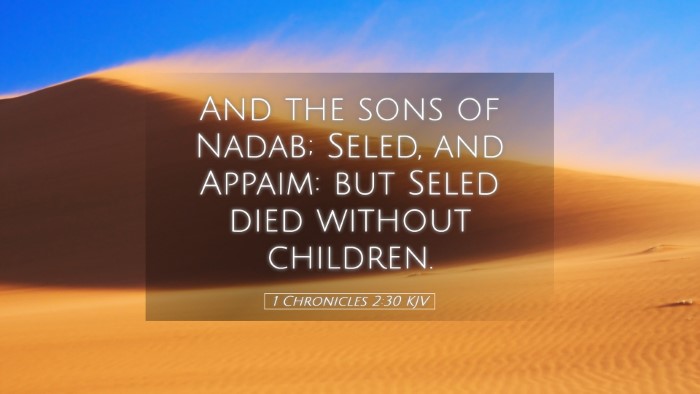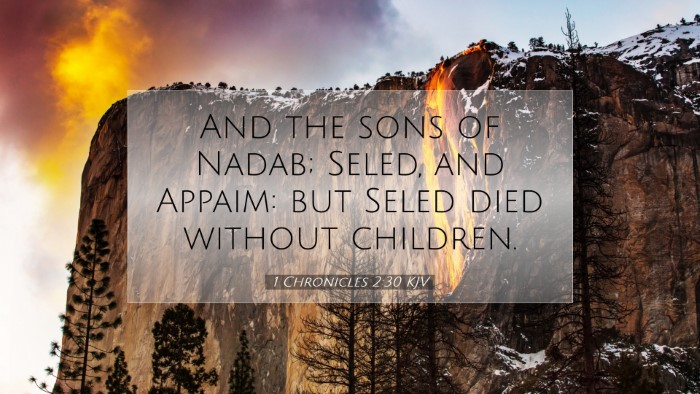Commentary on 1 Chronicles 2:30
Verse Text: "And the sons of Sheshan were, Ahlai and Naham." (1 Chronicles 2:30, KJV)
Introduction
The genealogical records in the Bible often serve as crucial links to understanding the history of Israel and God’s covenant with His people. Such verses, although seemingly simple, carry significant theological, historical, and pastoral implications. This commentary provides a synthesis of insights drawn from public domain commentaries, aimed at enriching the understanding of 1 Chronicles 2:30 for pastors, students, and scholars alike.
Historical Context
The book of Chronicles was written to recount the history of Israel, emphasizing God's sovereignty, the significance of worship, and the lineage of David. Genealogies play a vital role in establishing the legitimacy of the tribes, particularly the lineage of David. Understanding verse 1 Chronicles 2:30 requires placing it within the broader context of the families descended from the line of Judah.
Insights from Matthew Henry
Matthew Henry notes that genealogical lists in Chronicles demonstrate the faithfulness of God through generations. The mention of Sheshan's sons points to an acknowledgment of family legacy, emphasizing the continuity of God’s promises. Henry suggests that the specific naming of Ahlai and Naham reflects their importance, possibly in future events concerning the tribes of Judah.
Insights from Albert Barnes
Albert Barnes highlights the significance of Sheshan within the lineage, remarking on the historical relevance of individual names. He emphasizes the notion that these names carried weight in the Israelite community and underscores the importance of familial identity in ancient Israel. Barnes encourages readers to see the broader narrative that these genealogical listings contribute to God’s overarching plan of salvation.
Insights from Adam Clarke
Adam Clarke elaborates on the implications of Sheshan’s descendants, suggesting that the mention of Ahlai and Naham indicates a continuation of the priestly and royal lines through lesser-known figures. He points out that while these individuals may not be prominent in other biblical accounts, their inclusion serves to remind the faithful of God’s faithfulness to all His people, regardless of stature or renown within biblical narratives.
Theological Implications
The genealogical mention of Ahlai and Naham offers deep theological insights:
- God’s Sovereignty: The retention of genealogical records underscores God's sovereignty in preserving a remnant through every generation. Each name signifies God’s intentional design in history.
- The Importance of Legacy: Family names in Israelite culture indicate the significance of legacy and heritage in the covenant relationship. Each generation is called to remember and uphold God’s commands.
- Inclusivity of God’s Plan: The mention of lesser-known individuals showcases God's inclusive nature, inviting all within the covenant community, not just the prominent figures.
Pastoral Applications
For pastors and leaders, 1 Chronicles 2:30 serves as an important reminder:
- Value of Every Individual: Just as each name in the genealogy is recorded, every individual in the congregation holds value in God's eyes. This challenges leaders to recognize and nurture the gifts of all members.
- Encouragement for Families: The families represented in the Bible, even those less known, remind congregations of the significance of heritage. Pastoral care should emphasize family connections within spiritual formation.
- Faithfulness in Generations: This verse illustrates the importance of faithfulness passed down through generations, urging churches to invest in teaching and mentoring younger members.
Conclusion
1 Chronicles 2:30, while brief, encapsulates a wealth of historical, theological, and pastoral insights. The lineages within Chronicles serve to remind the faithful of God’s enduring promises across time and space. For pastors, students, and scholars, understanding these connections enriches the exploration of God’s continuous work through history, fostering a deeper appreciation for God’s sovereignty and faithfulness. As we ponder the names Ahlai and Naham, we recognize that every name, like every person, is significant in the eyes of God.


